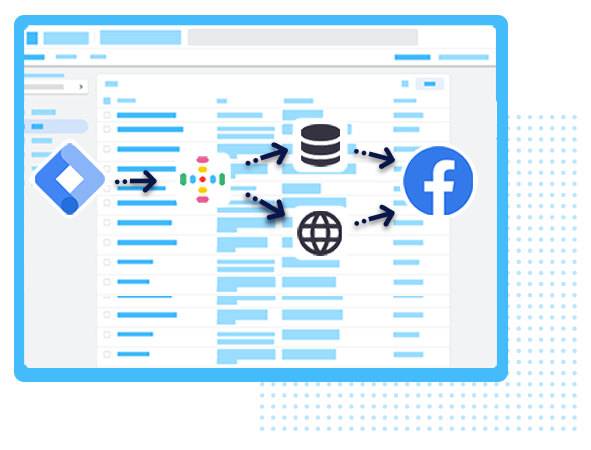
The importance of starting your own online store
This article wants to share with you the importance of creating your own online store
1. Can build customer email lists and market directly to them
One of the most important advantages of having your own online store is that you can market directly to your online store visitors and customers. Unlike the marketplace of customers who buy your products, selling directly to consumers on your online store means you can collect their contact information. When you have your customers' email addresses, you can send them email marketing promotions, offer discounts, and launch new products.
It's much harder to get repeat customers in the marketplace because you don't have direct access to customers. There will be fewer opportunities to provide good customer service and promote other products in disguise. Since it is relatively easier to retain customers than to acquire new ones, communicating with existing customers is an integral part of generating revenue for your online store.
In addition to knowing who has purchased in the past, you also know what they bought, how much they spent, and what they were interested in. You can use this information to influence and suggest future purchases, such as listing "items you may be interested in" on your online store.
- Build and strengthen your brand
When you market your products, they are listed alongside other companies' products. From word limits or word count limits to the use of logos, there is little room for customization or branding. In fact, it is the brand in the market that is in the leading position, not your personal brand. Customers will use which merchant sells cheaper to decide to patronize. Large-scale platforms mostly use price wars, which makes building brand awareness and recognition. almost impossible.
Most of the time, visitors and customers think your product belongs to the market without realizing you exist. In other words, people who buy your product will remember the market for your product, not you.
Your goal should be to get consumers to associate your product with your brand and think of your brand when they think of the category. When running your own website, it’s best to maintain complete control over how it looks, what’s in it and how it works, you can even reinforce your brand during customer unboxing and use custom branded boxes to impress customers impression. Most importantly, because then your products gain credibility - not third-party marketplaces - big shopping platforms.
- Make your own rules for your e-commerce site
Influence the customer journey and user experience more directly by running your own e-commerce store, adding product photos and videos in certain places, changing the layout and navigation, changing the site theme, editing button placement and text, telling about your company stories, add blogs, etc. Most importantly, don't worry about competitors' products appearing next to yours in a row on the page.
You may create a website with clear product categories, product descriptions, product images, and any other e-commerce features to customize your own brand of online store. The grouping and pricing of products, and whether to offer free shipping, such as giving freebies during the checkout process, can all positively influence consumer behavior. It's easier for your own online store to roll out these kinds of offers, because there are no strict rules or regulations that you have to follow, and it's all under your control. And you don’t have to worry about the impact of these changes on your conversions, because you don’t need to attribute a percentage of every sale to a third party like you do on shopping platforms.
- Learn more about your audience
Having your own website can help you understand your customers. This includes demographic data such as their country of residence and how they find and visit your online store. You can analyze their behavior on your online store, such as what they are viewing or have viewed. If you find that certain traffic sources are generating significant benefits for your business, you can choose to focus your efforts there and invest more in those channels because you know they are profitable.
In addition to this, you can get information not only about your existing customers, but also where those customers who abandoned their carts or didn't end up buying were lost. It could be that the product page doesn't have enough customer reviews or good enough photos, the online store is too slow, shipping is too high, lacks a user-friendly website design, or your checkout process lacks the target customers want in your ecommerce store Find payment methods and payment options, which are all needed to use this data to improve and optimize your website to increase conversions and help you sell more products.
- Run creative marketing campaigns
Having your own website doesn't mean customers will automatically flock to your online store. Once you start an online store, you have to work hard to drive traffic. The first step in acquiring customers is to drive traffic to your website through the power of SEO and social media. Setting up the right campaign isn't always easy, but you can be more flexible about getting people to find and buy your products.
Online store owners can tailor marketing strategies to suit their target audience and specific shopping habits. Some common strategies include using Facebook Ads and Google Ads to reach your audience, researching and using keywords that people use to search for Websites create content, drive traffic, or use discounts or coupons to drive target audiences back to the retailer's website. All in all, there are countless ways to attract people to your brand in e-commerce. As long as you can find an e-commerce solution that suits your online store, you are halfway there. Owning your own website is an important part of your e-commerce strategy. part, is a great way to grow your brand, gain loyal customers, gain new insights, and get creative with your marketing.


![[Hong Kong Shopify localization] Shopify <> Automated Logistic System](http://wilkinson-estore.com/cdn/shop/articles/Shopify-LOCALIZED-Shipping-HONG-KONG-SF-EXPRESS_ab51cae9-43e7-4c43-8b1c-58cb2950073d.png?v=1652864040)

